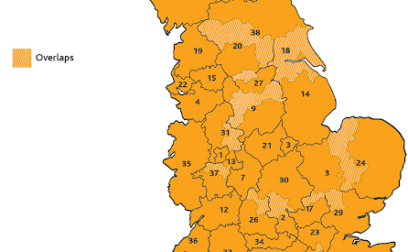TABLE OF CONTENTS
Call our dedicated COVID-19 finance hotline on 0203 868 0364 between 8am and 6pm, 7 days a week.
You might be one of the many businesses who have temporarily closed because of the coronavirus lockdown. Or you might be soldiering on with substantially lower turnover. No doubt you’ll have read about the various measures that the government has introduced to support businesses like you (and sole traders) who are now facing uncertainty around what comes next.
You’ll find below clear summaries of these government loans, grants and other measures. We’re here to help you find the most relevant support for your business during this time of need.
Join the 70,000+ businesses just like yours getting the Swoop newsletter.
Free. No spam. Opt out whenever you like.



























We work with world class partners to help us support businesses with finance
Suite 42, 4th Floor, Oriel Chambers, 14 Water Street, Liverpool, L2 8TD
View in Google MapsKingfisher Way, Silverlink Business Park, Newcastle upon Tyne, NE28 9NX, UK
View in Google MapsSuite 105A, Airivo, 18 Bennetts Hill, Birmingham, B2 5QJ
View in Google MapsAberystwyth Innovation and Enterprise Campus
Gogerddan Campus
Aberystwyth University
Ceredigion
SY23 3EE
Dogpatch Labs, The CHQ Building, Custom House Quay, Dublin, Ireland
View in Google MapsSuite 801, Level 8, 84 Pitt Street, Sydney, NSW 2000, Australia
View in Google Maps43 W 23rd St, New York, NY 10010, United States
View in Google Maps21 Dreyer Street, Cape Town, South Africa, 7708
View in Google MapsClever finance tips and the latest news
delivered to your inbox, every week
Join the 70,000+ businesses just like yours getting the Swoop newsletter. Free. No spam. Opt out whenever you like.

We use necessary cookies to make our site work. You can change your cookie settings in Cookie Preferences
closeOur use of cookies
We use necessary cookies to make our site work. We'd also like to set optional third-party cookies to help us improve the experience. Using this website will set a cookie on your device to remember your preferences.
For more detailed information, please see our Cookie Policy
Necessary Cookies
These are cookies that are set by Swoop necessary for our website to function.
Third Party Cookies
These are services that are set by Third party companies in order to help us to understand and improve our website, remember preferences and to display advertising.
Necessary Cookies
We require some cookies for the operation of our website, which do not gather information about you that could be used for marketing or remembering where you have been on the internet.
For more detailed information visit our Cookie Policy
Third Party Cookies
These cookies help us to improve our website by collecting and reporting information on how you use it. The cookies collect information in a way that does not directly identify anyone.
For more detailed information visit our Cookie Policy



